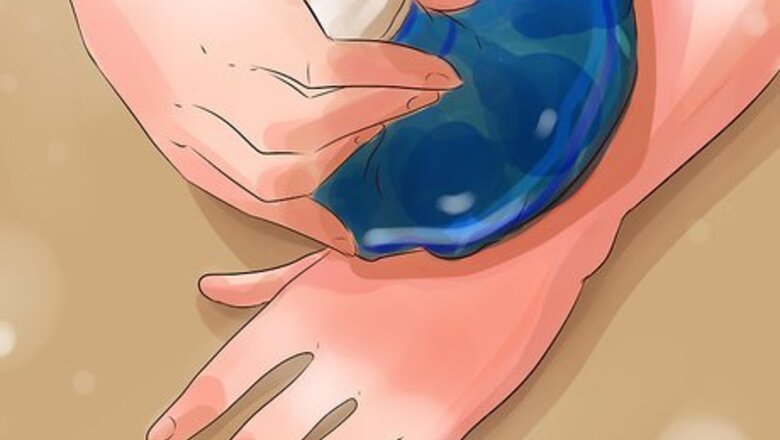
views
Using Self-Care Methods
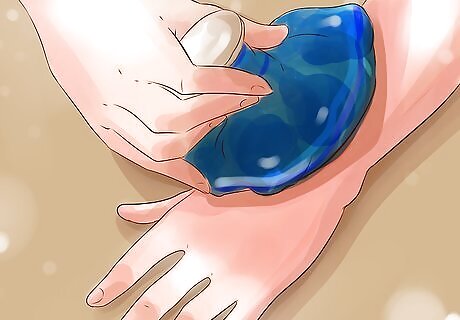
Apply a cold compress to relieve itchiness. The cold temperature of the ice can temporarily numb your skin so that you don’t feel the itchiness anymore. The compress also narrows the blood vessels in the surrounding area, which can also help to limit the itchiness. Apply a cold compress to the area for 15 to 20 minutes. Do not exceed 20 minutes, or the cold temperature could cause skin damage. If you do not have a cold compress, wrap ice in a hand towel; do not put the ice directly on your skin.
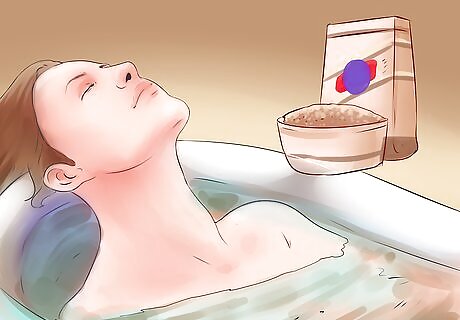
Take an oatmeal bath. Oatmeal can help to soothe any itchiness caused by a wound. You can generally purchase oatmeal-based bath products at your local pharmacy. Oatmeal contains colloidal protein and high mucilaginous content that can help to keep your skin from drying out and becoming itchy. Soak in an oatmeal bath for 15 to 20 minutes. Rinse off using warm water without soap, as the soap will remove the essential minerals from your skin.
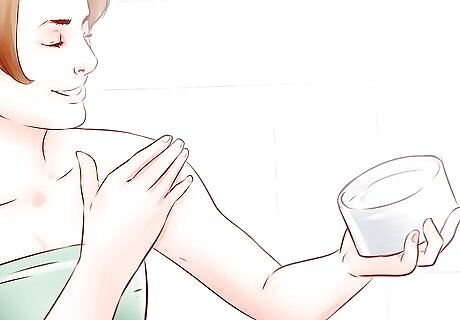
Apply calamine cream. This medicated anti-itch cream is used for the temporary relief of itching. However, do not apply it to broken skin, as it will only cause further irritation. You can purchase this cream over-the-counter at your local pharmacy. You can apply this cream every six to eight hours, or as necessary.
Using Medications to the Relieve the Itch
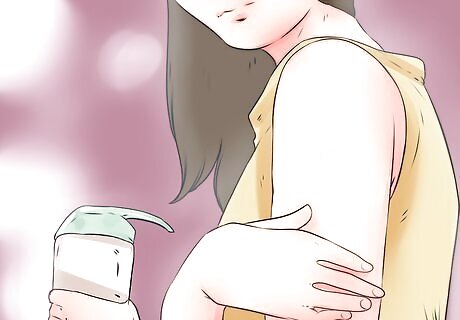
Apply a medicated cream. Neosporin is an antibacterial and anti-itch cream that is used to treat itchy wounds. The cream inhibits the production of protein in bacteria that can result in cell death and cause itchiness. You can apply medicated creams three times a day, or as directed by a doctor.
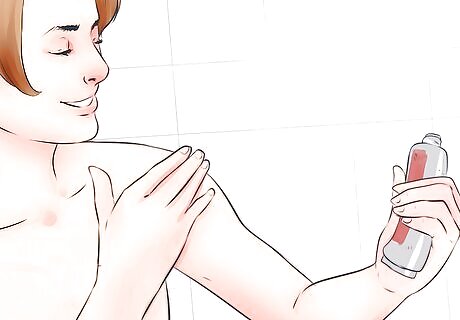
Use a 1% hydrocortisone cream. This cream is used for the relief of inflamed and itchy skin. It acts by stabilizing leukotriene lysosomal membranes that prevent the release of acid hydrolyses (things that make you feel itchy). You can apply this cream every 8 to 12 hours to keep your skin from feeling itchy.
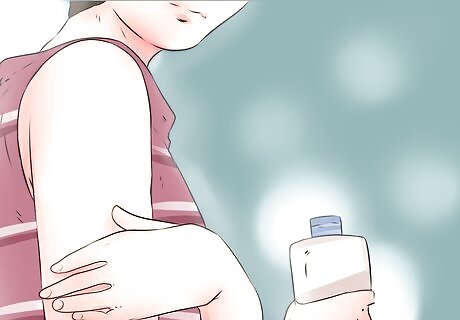
Take over-the-counter antihistamines. These medications release antihistamines, which inhibit the action of histamines. Histamines cause you to feel itchy. Some commonly used antihistamines include: Diphenhydramine (Benadryl). It is available in 25 mg and 50 mg pills but you should not take more than 300 mg in a day. Be careful, as benadryl can cause drowsiness. Loratadine (Claritin). It is available in 10 mg tablets and can be taken once a day. This antihistamine generally does not cause drowsiness, but you should still look for the ‘non-drowsy’ banner when purchasing these antihistamines.
Caring for Your Skin
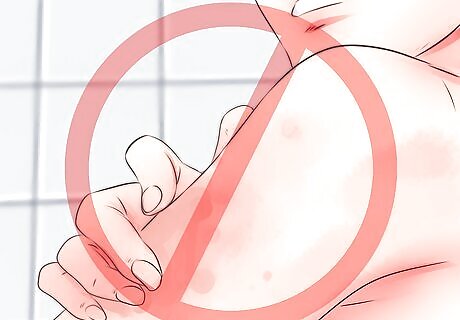
Avoid scratching. Scratching can reopen the wound, which in turn can delay the healing process. If you cannot help but scratch, rub the wound using minimal pressure, but do not use your nails, as they will irritate the wound.
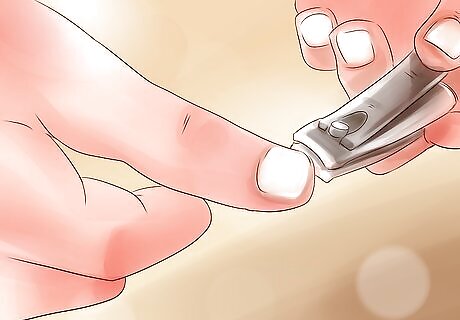
Trim your nails. You may unconsciously scratch at the wound during the night. To limit the amount of damage this unconscious scratching can do, trim your nails so they are as short as possible.
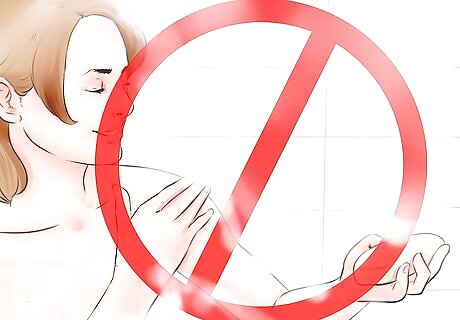
Avoid using harsh soaps and detergent. Using products with strong chemicals can delay wound healing as the soap may alter the skin’s production of new cells and tissues. Mild soap products are recommended such as Dove, Neutrogena, and Cetaphil; these products are mild cleansers and good for the skin.
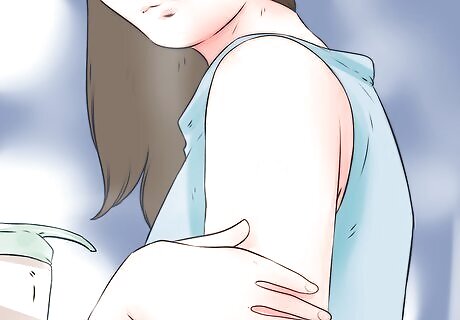
Always moisturize your skin. When you moisturize, you can prevent dryness, which can limit how much itchiness you feel. Dry skin is more prone to breakdown and irritation than well moisturized skin is. Moisturize your skin after taking a bath or washing your hands to help your skin stay silky smooth. Use a 100% petroleum jelly product to create a moisture barrier for your skin.
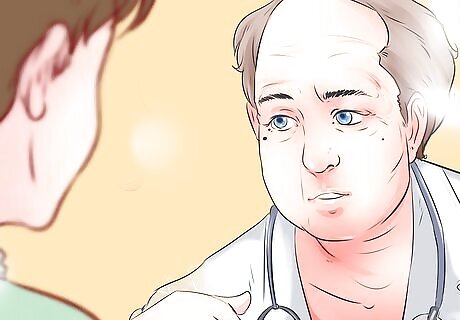
Know when to call a doctor. If the itchiness you are experiencing has become constant and more severe, your wound may be infected. If this is the case, you should give your doctor a call. Symptoms of an infected wound include: Inflammation around the sides of the scabs. Increasing pain. Abnormal wound discharges with an unpleasant odor. Fever


















Comments
0 comment